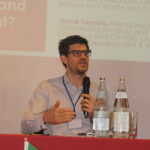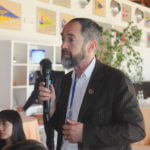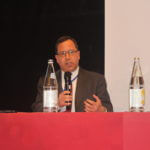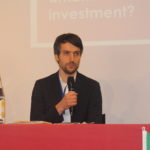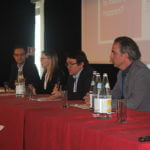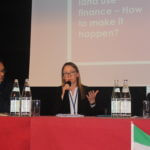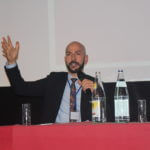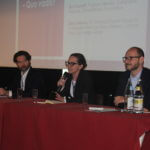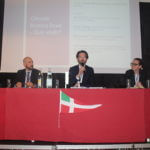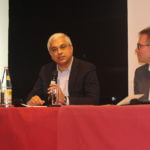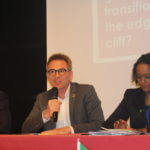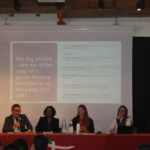Organized by Climate Policy Initiative in collaboration with the World Bank Group, China Light Power (CLP) and the Organisation for Economic Co-operation and Development (OECD), the seventh meeting of the San Giorgio Group brought together key financial intermediaries and institutions actively engaged in green, low-emissions finance. It prioritized frank input and engagement on effective investment, serving as a platform for learning, scaling up best practices, and connecting with green finance leaders. ________________________________________________________________________________________________________ ________________________________________________________________________________________________________ This panel focused on the strategic and operational changes needed to move the development finance community from the $100 billion climate finance target of old, towards the more comprehensive notion of aligning financial flows with the requirements of the Paris Agreement. Panelists explored the operational and strategic changes implied by alignment, how to incorporate alignment into institutional goals and mandates, and commonalities and differences in alignment approaches across different types of development finance actors. Chair: Damien Navizet, Chef de la Division Climate, Agence Française de Développement Panelists: This conversation focused on regulatory changes, regulatory controls and fiscal incentives for green finance to become mainstream. It highlighted China and the EU, with observations for emerging markets where possible. Chair: Mahua Acharya, Senior Advisor and Asia Director, Climate Policy Initiative Panelists: In the lead up to the Global Stocktake as part of the Paris Agreement, it is important to provide more detailed analysis of whether finance flows are fit for purpose. Various proposals for tracking dirty investments, finance for innovation, and stock transformation have been proposed. This panel discussed new developments for measuring progress on climate finance, and sought to reach a consensus on the relevant metrics that are important to support investment mobilization and political processes. Chair: Padraig Oliver, Manager, Climate Policy Initiative Panelists: There is an urgent need to spur greater investment into climate adaptation and resilience, in both the public and private sectors. The frequency and magnitude of natural hazards triggered by climate change has been increasing globally, leading to USD 1.5 trillion in economic damages from 2003 to 2013 (FAO, 2015), in addition to impacts to human and ecosystem health. However, current investments in adaptation constitute only a fraction of what is needed to avoid costly and catastrophic future impacts. This panel discussed how to tackle these risks from a financial perspective. Panelists: Some financially sustainable business models and financial instruments are emerging to promote climate smart agriculture, conservation, and restoration. However, compared with the power sector, climate friendly land use is often nowhere near market readiness. Models are still being piloted and depend on concessional finance. The issue is more urgent than the pace of change. This calls for radical rethinking that is not dependent on limited philanthropic funds. This panel discussed how to create the ecosystem of financial actors to move the needle on land use finance toward systemic change and financial sustainability. Chair: Angela Falconer, Associate Director, Climate Policy Initiative Panelists: CPI analysis shows that blended finance for clean energy is at least a USD 360 billion opportunity. With structured, ready-to-go, and funded examples from the Global Innovation Lab for Climate Finance, Convergence, and other initiatives making impact on the ground, there is reason to believe it’s the Holy Grail for financing development challenges. However, proponents of blended finance initiatives have a host of lessons learned, particularly as potential investors seek to replicate and scale up early successes. Chair: John Morton, Senior Advisor, Blended Finance Task Force Panelists: CPI identified USD 22 billion in climate adaptation finance in the Global Landscape of Climate Finance in both 2015 and 2016. The Landscape currently tracks adaptation finance from governments, climate funds, and bilateral, multilateral, and national finance institutions. However, data is often incomplete or non-existent for domestic public sector budgets and the private sector. A presentation by CPI on opportunities to close data gaps in adaptation and resilience finance tracking was followed by an in-depth discussion. Presentation: Karoline Hallmeyer, Analyst, Climate Policy Initiative First Respondents: Investment in cities is critical to fighting climate change. Cities account for 75% of GHG emissions, 80% of global GDP, and will continue to grow as populations shift towards urban centers. Cities around the world have also shown that they can step up on climate action even when national actors have stepped back. But despite a relatively high level of ambition, cities face knowledge, financial, and regulatory hurdles to driving investment. This panel explored effective tools, financing structures, governance, and other approaches used by cities that can be scaled and replicated elsewhere to help close the sustainable urban infrastructure gap. Panelists: The Task Force on Climate-Related Financial Disclosures has made recommendations both on physical risks due to climate impacts and transition risks due to the policy, technological, and market responses to be included in corporate financial filings. Understanding the various risks and opportunities associated with climate change, as well as the shifting preferences of shareholders and consumers, is key to informing capital allocation decisions. This conversation highlighted the Task Force, and how it could move from Article 173 to the right tools, standards, and ultimately actions, to make real progress before the UN Secretary-General Summit in September 2019. Chair: Dewi Dylander, Deputy Executive Director ESG, Pensionskassernes Administration A/S Panelists: Since the first San Giorgio Group meeting eight years ago, the green finance community has made significant progress. However, achieving rapid knowledge transfer, scale, and economy-wide transformation remains a challenge as we hurtle toward 2020 goals for peak emissions and a low-carbon, climate resilient economy. This discussion brought together the themes from the previous two days, prioritizing the most critical bottlenecks for further scale up and ultimately, economy-wide transformation. Chair: Barbara Buchner, Executive Director, Climate Policy Initiative Panelists: Close of the meeting by Barbara Buchner, Executive Director, Climate Policy Initiative Photo Gallery 
Download the Summary of the Seventh San Giorgio Group here.
Thursday, 21 March 2019
Welcome & state of climate finance from Barbara Buchner, Executive Director, Climate Policy Initiative
Panel: How to move from the $100 billion to alignment?
– Adrien is a Senior Climate Change Specialist at the Environment, Climate and Social Office of the European Investment Bank (EIB). He is the Coordinator of the institution’s 2016-2020 Climate Strategy implementation, which spans activities to reinforce the impact of climate financing, build resilience to climate change and integrate climate change considerations across all EIB operations. Prior to joining the EIB, he worked for 10 years in the World Bank Group’s Climate Department. He was Manager of the Partnership for Market Readiness (PMR), a global partnership to support the development and piloting of market-based instruments for GHG emissions reduction.
– Alzbeta is the IFC’s Director and Global Head of Climate Business. Her role is to facilitate business growth, provide thought leadership, fundraise and facilitate all work related to renewables, climate-smart agribusiness, green bonds, smart cities and other climate business areas. Prior to her current appointment, she was a Global Co-Head of Industrials for IFC, managing $15bn portfolio of investments in emerging markets. Alzbeta joined IFC from Export Development Canada. She holds a Chartered Financial Analyst (CFA) designation. She currently serves on the boards of Hans Merensky in South Africa, Grupo Los Grobo in Argentina, both agribusiness companies, and on the New York University Center for Sustainable Business Advisory Board.
– Klaus is Senior Economist with the World Bank’s Climate Fund Management Unit. Klaus has 20 years of experience with international climate change cooperation with a focus on carbon markets and climate financeConversation: Green Banks: A real possibility or a long shot?
– Jonathan, Head of Syndication Finance – Development Bank of Southern Africa, is qualified as solicitor in South Africa and spent 18 years in investment banking in Johannesburg, Toronto and the City of London. He represented the Canadian Banks on the Brazil, Argentina and Mexico debt restructuring committees during the 1980s South American debt crises, and originated several debt syndications for South African private and SOE enterprises post the 1994 elections when South Africa could once again access the Debt Capital Markets.
– Gavin leads GIG’s international green bank advisory activity, which works with governments globally as they seek to enable their transition to a low carbon economy. He continues to work on the development of GIG’s green IP, having previously led the team that created GIG’s Green Principles, Green Investment Handbook and Green Impact Report. He has have worked in finance and commodity markets for 20 years, beginning his career at BP before moving to Morgan Stanley, Rabobank and VTB Capital. Gavin has worked on the sustainability agenda since the beginning of the European Emissions Trading Scheme and United Nations Clean Development Mechanism, as well as financing renewable energy and emission reduction projects across Europe, Africa, Asia and the Americas.Panel: Climate finance flows – Quo vadis?
– Paul is Managing Director at Rocky Mountain Institute, where he oversees programs in global climate finance and U.S. subnational action and serves on the institute’s Executive Council. Paul’s background is in finance and government. He served in the Obama White House as Special Assistant to the President and Senior Director for Energy and Climate at the National Security Council in the period culminating in the Paris Agreement. He helped conceive and negotiate the U.S.-China presidential climate agreement of 2014 and 2015, the Mission Innovation initiative, and the OECD restrictions on export credit for coal-fired power plants. Prior to that, Paul was U.S. lead negotiator for climate finance at the U.S. Department of State, where he played a role in establishing the Global Innovation Lab for Climate Finance, the World Bank’s Climate Auction Facility, the U.S.-Africa Clean Energy Finance (ACEF). Paul’s was previously director of the world’s largest private carbon fund at Climate Change Capital, and co-founder of the environmental brokerage firm Vertis.
– Olivia is a lawyer with 15+ years energy sector experience. As technical focal point for finance at SEforALL she supports the SRSG/CEO, management and staff on strategy and long-range interventions to unlock finance and advance SEforALL’s mission to support universal access to modern energy by 2030. Before joining SEforALL Olivia was Director, Sustainable Finance at REEEP where she worked to effectively deploy climate finance for clean energy projects, leveraging her experience of financing renewable energy technologies through the innovation cycle from R&D through commercial deployment and of advising governments, DFIs and investors (including ADB, ARENA, CEFC and UNDP) on energy policy and regulation. From 2009-2012 Olivia was Investment Director of the Australian Solar Institute, the Australian government’s lead solar energy agency. Previously she held legal and strategy roles with Australia’s export credit agency, Efic, and as a finance lawyer in private practice worked with Baker & McKenzie in Sydney and Hong Kong and Latham & Watkins in New York.
– Ilmi is the Director of ClimateWorks Foundation’s Sustainable Finance Program. He is an attorney and policy expert with a decade and half of experience in environmental law and policy, sustainable development, energy and infrastructure finance, and public-private partnerships. Previously, Ilmi headed the Green Growth Business Unit at the Overseas Development Institute, served as the Special Counsel for Climate and Environment and the African Development Bank, and practiced law in the global energy and infrastructure group at Freshfields.
– Sara is responsible for sustainability management and strategy at Borsa Italiana, part of London Stock Exchange Group. She is also co-chair of the working group tasked with setting up the government-backed Italian Sustainable Financial Centre, following her involvement in 2016 in the Italian National Dialogue on Sustainable Finance as co-chair of the Capital Markets working group. She has been an active member of the Consultative Group of the UN-backed Sustainable Stock Exchanges initiative since 2014, and in 2018 joined the Steering Committee of FC4S, the UNEP-supported network of Financial Centers for Sustainability. In June 2018 she was appointed to the EU Technical Expert Group on Sustainable Finance. She has a Masters in Economics from Bocconi University and has co-authored a number of publications on the impact of taxation on the cost of capital. She also has a post-graduate certificate in Applied Anthropology from the University of Milan-Bicocca.Panel: Adaptation and resilience – Climate risk or opportunity?
Emilie is an entrepreneur and an expert in the field of climate adaptation and resilience. Emilie founded Four Twenty Seven to bring climate risk analytics to private sector decision-makers and enable the incorporation of climate science into economic and financial decisions. With Four Twenty Seven, Emilie pioneered the development of standardized climate risk assessments and public disclosures for multinational corporations. Emilie’s work mixes rigorous economic analysis and creative data visualization to help businesses and communities understand climate risks and develop an effective climate resilience strategy. Emilie was the lead author on Advancing the TCFD Recommendations for Physical Climate Risks and Opportunities, published with the EBRD and the Global Center for Adaptation in 2018, and lead author on the 2015 United Nations Caring for Climate report The Business Case for Responsible Corporate Adaptation. She is a frequent speaker at international events on private sector climate risk and opportunities. Emilie also serves as a member of the State of California’s Technical Advisory Group for the implementation of Governor Brown’s Executive Order on climate change (EO B-30-15) and teaches at the University of California, Davis Executive MBA on Business & Climate Change.
– Kathy is a climate risk, and resilience policy and finance expert and the Director of the Adrienne Arsht Center for Resilience (AARC). The global AACR, which is a part of the Atlantic Council, is focused on building scalable solutions for three key resilience challenges: climate change, migration and security, through finance and risk tools, policy frameworks, technology and communications strategies. She is the former senior vice president, Global Environmental & Social Risk Executive for Bank of America. In this role, Baughman McLeod led the Bank’s climate risk disclosure efforts, built the Bank’s resilience strategy amd helped leverage the Bank’s global reach to advance climate-smart, low carbon and resilience investments, helping to reach the Bank’s commitment of deploying $125 billion in capital by 2025.
– Jay is co-founder & Managing Director of The Lightsmith Group. Jay has over 20 years of experience in investing and public policy in the public and private sectors. Prior to co-founding Lightsmith in 2016, Jay was a Managing Director and Partner of Siguler Guff, a global alternative investment firm with over $10 billion under management. Prior to joining Siguler Guff in 2012, Jay was the Head of Investment Funds and Chief Investment Strategist at the Overseas Private Investment Corporation (OPIC). In this role, Jay led the agency’s $2.6 billion active emerging markets private equity program. From 2007 to 2009, Jay led private equity and illiquid investing for Europe, the Middle East and Africa (EMEA) at R3 Capital, formerly the Global Principal Strategies Division of Lehman Brothers. Previously, Jay focused on direct growth equity investing as a Principal at The Carlyle Group, where he worked from 2000 to 2007 and also from 1993 to 1995. From 1998 to 2000, he served as a law clerk to Justice David H. Souter, United States Supreme Court, and to Judge Michael Boudin, United States Court of Appeals for the First Circuit.
– Carlos is Climate Resilience Finance Director for the Capital, Science & Policy Practice at Willis Towers Watson. His work focuses on the promotion of investment solutions aimed at fostering a more efficient allocation of capital for the protection of assets and operations from physical climate risks. Prior to joining Willis Towers Watson, Carlos managed a climate resilience finance facility at the Multilateral Investment Fund – part of the Inter-American Development Bank Group – also dedicated to identifying specific investment opportunities in connection to physical climate risks. In the past Carlos worked at the Economic Office of the Spanish Embassy in Angola as Foreign Direct Investment Advisor and later as Business Development Manager for a project finance advisory firm.
– Luca as HSE&E Vice President leads the development of a Sustainable Barilla Group Supply Chain process by improving knowledge and culture related to Health & Safety, Fire Prevention & Protection, Environment and Energy. Luca is also the BCFN reference for the Sustainable Growth Area due to the competence developed in more than 15 years on Food Supply Chain Sustainability. Many are the BCFN Paper published under his supervision: Water Economy – Climate Change, Agriculture & Food – Sustainable Agriculture – Food Waste; and the BCFN Double Pyramid. Since 2001 he has been an Industrial Expert at the EU IPPC Food & Drink- Technical Working Group- JRC in Seville. Luca was Board Member & Responsible of the Packaging Prevention Activity at Italian Packaging & Packaging Waste Consortium (CONAI).Panel: Sustainable land use finance – How to make it happen?
– Martin is the head of the Environmental Funds and Climate Finance Policy Unit at the European Investment Bank (EIB) in Luxembourg leading a team focusing on investments in private equity and debt funds related to the environment and clean infrastructure as well as helping to coordinate the EIB’s climate finance activities. In addition to his role at the EIB, Martin is a member of the Board of Director of the Green for Growth Fund. Prior to his current role, Martin coordinated the monetisation activities of the NER300 Initiative for the EIB, which raised over EUR 2 billion to fund innovative renewable energy technologies and carbon capture and storage demonstration projects. Martin joined the EIB in 2011 from Bank of America Merrill Lynch (BAML) in London. Prior to his time at BAML, Martin worked at RNK Capital LLC, an environmental investment firm in New York, and the Organisation for Economic Co-operation and Development (OECD) in Paris.
– Pedro is the CEO of Sustainable Investment Management (SIM), a fund management company focused on sustainability, currently engaged in the development of the Responsible Commodities Facility, a debt fund to promote the production and trading of zero-deforestation soy and corn in Brazil. He is also the founder of BVRio – Rio de Janeiro’s Environmental Exchange, an organisation aimed at promoting market mechanisms to facilitate compliance with environmental laws. Among other sectors, BVRio runs a Responsible Timber Exchange, a trading platform with inbuilt due diligence capabilities, to facilitate the trading of timber products from legal and/or certified sources, and is currently developing the 3R Initiative, an international alliance to promote the recycling of waste plastics, with the involvement of large consumer goods companies such as Danone, Nestle and Tetrapak.
– Agustin leads Conservation International’s (CI) conservation finance work, with the focus on developing and financing pioneering solutions for lasting change in environmental conservation. Agustin moved to CI from the private sector with the goal of using public-private finance to drive natural capital conservation and low carbon development, primarily by catalyzing the growth of ecosystem service markets. Before CI, Agustin spent time in various banks and investment groups, including six years spent on the commodities desk of a UK trading group. Panel: Blended finance – Holy Grail or limits to usefulness?
– Harald is Senior Advisor at TCX. A trained macro-economist, he joined TCX at its beginning in 2008 to implement a macro-fundamental based pricing approach for currency hedging in small frontier markets. Today, he works on scaling up the development impact of TCX and on new strategic initiatives. Over the past years, a large part of his efforts has been dedicated to developing local currency financing solutions for renewable energy and other infrastructure investments in frontier and emerging markets. Harald also played a key role in starting-up Mantis BV, an advisory firm, which provided forecasting and risk quantification services for frontier market investors. From 1994 to 2008, Harald worked at the IMF. Before that, he worked at the US House of Representatives in Washington and a London investment bank.
– Chris is an independent adviser specialising in the financing of different types of sustainable assets. He has been engaged in the finance of infrastructure, climate and environmental assets for over 40 years, much of this time with the European Investment Bank. As EIB’s Head of Infrastructure Funds and Climate Finance he oversaw the EIB’s volume of climate financing grow tenfold to $20bn p.a., and led the creation of a $3bn portfolio of investment in 60 equity, debt and blended fund vehicles, the majority dedicated to environment and climate assets. Many of these supported SME vehicles, sometimes following highly innovative models. He has a broad, practical knowledge of the sustainable finance agenda, and is acknowledged internationally as a thought leader on climate finance. He has worked at all levels of the public and private financial worlds, throughout the EU and in many emerging markets. Currently he serves as NED on a number of investment funds, advises various policy advocacy and research entities, and works with startup fund management teams, all in the sustainable space.
– As CEO of Convergence, Joan leads the world’s first institution dedicated to increasing private sector investment in emerging markets by helping investors execute blended finance deals. Joan is an expert in catalyzing investment in places that need it most and brings with her over 20 years of experience in emerging markets investing. Prior to joining Convergence, she served as U.S. Overseas Private Investment Corporation’s (OPIC) Managing Director for Business Development and Partnerships, leading efforts to partner with philanthropic and private investors to increase capital flows to OPIC’s target markets. Before OPIC, Joan served as a managing director on the emerging markets team at Global Environment Fund, a privately held asset manager with $1 billion in assets under management, dedicated to the energy, environmental, and natural resource sectors. She began her career as an investment officer at the International Finance Corporation, where she concluded pioneering transactions in diverse infrastructure and manufacturing sectors across Asia.
– Ricardo Nogueira is an independent consultant on climate finance and climate change policy, international development, and sustainable investing. Rick recently completed a tour at the U.S. Department of State with the Obama administration where he served as a Senior Advisor to the U.S. Special Envoy for Climate Change. In this role he oversaw climate finance negotiation efforts and served as a U.S. board member on the Green Climate Fund (GCF). Prior to government service, Rick was a Managing Director at EEA Fund Management, where he was responsible for founding and managing a $400 million clean energy fund (Leaf Clean Energy Company). At EEA, Rick also oversaw the US and Latin American portfolios of Trading Emissions plc, a publicly listed carbon and clean energy investment fund.Friday, 22 March 2019
In-depth breakfast discussion on adaptation finance: What do we know – and what don’t we know?
– Alexis started his career in the USA on migratory issues with Mexico at the Carnegie Endowment for International Peace, before working for several years at the World Bank as a financial analyst. He later joined the French Development Agency (AFD) in Paris, where he headed the Infrastructure and Environment Division, managing development finance programs in a variety of regions and areas, including energy, transport, water and sanitation, telecommunications, climate change, forestry and biodiversity. He also was seconded to the UNFCCC Secretariat in Bonn to work on the design of the Green Climate Fund. Back to AFD, he now is deputy to the Executive Director of Strategy, Partnerships and Communication. He also is AFD CEO’s Sherpa for the International Development Finance Club (IDFC), a global network of national and regional development banks, currently chaired by AFD.Panel: Sustainable cities – How to close the gap between ambition and investment?
– James is Director of the City Finance Programme at the C40 Cities Climate Leadership Group. James is responsible for C40’s work supporting global megacities to overcome the barriers to financing climate action.
– Hermann is an advisor at the German Environmental Ministry (BMU) in the unit “IK I 4 – International Cooperation on Environment, Energy and Cities”. He is responsible for BMU’s international engagement on city climate action; including BMU’s funding for projects in developing countries. Prior, Hermann worked on climate finance negotiations and as a Senior Analyst at CPI, researching energy efficiency policies as well as climate finance tracking.
– Albert is a Global Senior Manager, Urban Finance at the WRI Ross Center for Sustainable Cities where he is responsible for developing strategies for sustainable urbanization, identifying opportunities for innovative financing, and building dialogues with the private sector. Prior to joining WRI in 2019, Albert served as a Senior Financial Sector Specialist with the International Finance Corporation of the World Bank. With a focus on capital markets, he developed financing plans for infrastructure projects globally and prepared diagnostics on Public Private Partnerships (PPP) and municipal finance in Turkey. He also worked on a research study on Fintech and access to finance.
– Cristiana is the Director of Partnerships and Government Relations at the Global Covenant of Mayors for Climate and Energy. She has been supporting Cities in developing and implementing climate action and resilience strategies for over a decade. She started with Mayor Bloomberg’s administration in NYC, then helped launch regional offices in Europe and the Middle East for The C40 Climate Leadership Group and the 100 Resilient Cities. Prior to joining the urban practice, she was legal advisor to the UNDP and corporate finance associate with Clifford Changes Rogers & Wells.
– Josué leads since 2006 the EBRD activities to scale up climate financing in central and Eastern Europe and in southern and eastern Mediterranean countries. Prior to EBRD, Josué Tanaka was at the World Bank being Special Assistant to the President and working in different posts on strategic planning, tropical forest conservation and environmental financing matters. Conversation: From risk disclosure to action
– Frédéric, Co-Head Institutional Clients Coverage, joined Amundi in 2009. He is the founder of the SWF Research Initiative. Formerly, he oversaw Corporate Equity Derivatives within Credit Agricole Corporate Investment Banking in New York and Paris. During his tenure, he developed and implemented the first international leveraged employee share purchase program, a technology now widely used among French companies. He has advised the French Government in different areas (employee investing mechanisms, market regulation, climate finance, etc.) and has a long track record of innovation at the crossroads of finance and government policy. Over the past few years, his action has been focused on climate change with a mix of financial innovation, research and policy making recommendations.
– Kingsmill is the Energy Strategist for Carbon Tracker. He believes that the energy transition is the most important driver of financial markets and geopolitics in the modern era. Kingsmill has worked as a sell-side City equity analyst and strategist for over 20 years, including for Deutsche Bank, Sberbank and Citibank in London, Hong Kong and Moscow. He has written research on emerging market and global themes, including the wider significance of the shale revolution and the impact of the energy transition on financial markets. Concluding panel: The big picture – Are we at the cusp of a green finance transition or at the edge of a cliff?
– Ayaan is the Director of the Private Sector Facility at the Green Climate Fund (GCF). She brings to GCF over 20 years of investment and portfolio management experience with private sector financial institutions, private equity and venture capital across Africa, Asia, Latin America, Middle East and Eastern Europe. Prior to joining GCF, Ayaan served as an independent senior advisor to a number of leading sustainable investment institutions, including as a Board Member and Chair of the Board Sub-Committee of Credit and Risk of Oikocredit International. In addition to serving as Managing Director of Africa Funds at UK-based CDC Group Plc, she spent 17 years at the International Finance Corporation in various senior leadership roles in the headquarters and in the field.
– Renat is a pioneer and social entrepreneur in the field of sustainability, climate change and renewable energies, where he is engaged since 1999. As a founding partner and CEO of South Pole, he coordinated the set-up of the company’s global sustainability finance business. Before founding South Pole, Renat was co-founder and CEO of the myclimate foundation, one of the world’s first players on the voluntary carbon markets. Renat has been elected “Social Entrepreneur of Switzerland” by the World Economic Forum’s Schwab foundation, and he serves as a member of the Expert Network of the WEF. He is member of the Innovation Council of InnoSuisse, board member of Climate-KIC, Board member of M-Power, and member of the advisory board of Impact HUB Zurich.
– Elvira manages debt investments, technical assistance operations and the company’s regional offices. She has devoted her career exclusively to development finance, combining financial sector development with the objectives of small business growth, housing improvement and the green and sustainable economy. Elvira started her professional career in 1998 in Russia at German development consultancy IPC before moving to the EBRD, the China Development Bank and then KfW Development Bank. In early 2010 she was appointed Managing Director at Finance in Motion.
– Tony has over 30 years of experience in financial services and investment banking. Tony founded O’Sullivan Partners in 2005, which became a leading investment bank in Australia, with 30 professionals and offices in Sydney, Melbourne and Brisbane. O’Sullivan Partners was acquired by Lazard Limited (NYSE: LAZ), the pre-eminent Wall Street Firm, in 2012 under the Chairmanship of former Australian Prime Minister, the Honourable Paul Keating. Tony became Global Managing Director of Lazard and Head of Investment Banking. Prior to this, Tony was a London-based Managing Director of Bank of America, with responsibility for European coverage.
– Vikram is Head of Climate and Carbon Finance at the World Bank Group. He leads the external engagement on climate finance and the deployment of innovative market-based solutions to mobilize private capital for low carbon development in emerging markets. He also manages the WBG’s carbon finance business with several funds under management and development, innovative results-based financing instruments like the Pilot Auction Facility, the Partnership for Market Readiness supporting countries wanting to put a price on carbon, and the initiative on the next generation of Networked Carbon Markets.
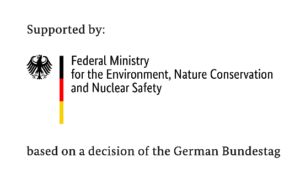
- Tentang CPI
- Wilayah
- Topik
- Program
- Sumber





